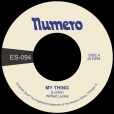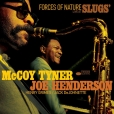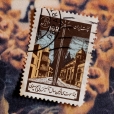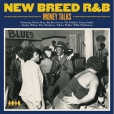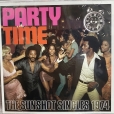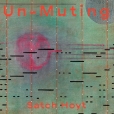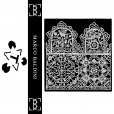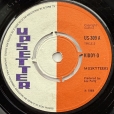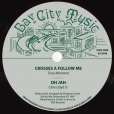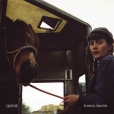Your basket is empty

Prince Philip Presents
Dubplates And Raw Rhythm From King Tubby's Studio 1973-1976
Prince Philip / Digikiller
A stupendous haul of sound-system specials and inspired experiments conjured from some of the greatest reggae rhythms of all time, from the inner sanctum of King Tubby’s studio in the mid-seventies (where Philip Smart was second engineer).
Seething with lethal touches of Tubby; dotted with head-spinning walk-ons for Hugh Mundell, Johnny Clarke, Jacob Miller and co; steeped in the genius of young Augustus Pablo, Smart’s childhood friend.
A staggering turn-up. Utterly crucial.
‘A never-before-issued live recording of McCoy Tyner and Joe Henderson leading a stellar quartet with bassist Henry Grimes and drummer Jack DeJohnette at the hallowed lost jazz shrine Slugs’ Saloon in New York City in 1966. Recorded by the legendary engineer Orville O’Brien — behind classic 1960s jazz albums such as Freddie Hubbard’s The Night of the Cookers and Alice Coltrane’s Journey to Satchidananda — the tape has been in DeJohnette’s personal archives for nearly 60 years.’
‘The surrealist, psychedelic brain-burps of notorious all-caps-tweeting wind-up-merchant Louis Johnstone aka Wanda Group. Twenty-six congealed morsels of spur-of-the-moment
sound-art executed with genuine economy of means, namely… a phone. An impulsive, scatter-brained trip into the inner circles of regional weirdness, secreting a creeping unease which really gets under your skin. Fragments of aural rubble haphazardly cohere into galvanising spacial tones and textures, punctured by Johnstone’s garbled Essex rantings. The long-distance stare of warbled tape loops is abruptly fractured by a drunken sing-along in a care home for the elderly. As hallucinogenic takes on the utterly mundane, there’s an obvious kinship with Lambkin’s nocturnal, straight-to-dictaphone sound-pieces. Dan Johannsen’s splintered classical collages on that PIG tape and the suburban soliloquies of Regional Bears alumnus Russell Walker also feel closely aligned.’ (All Night Flight)
With an A4 riso insert.
Beau Wanzer + Rezzett = maximum worries squared. Five frazzlers for all us nutters in the dance. Borez they izn’t.
A thought-provoking, deeply enjoyable consideration of displacement and dislocation, and abiding but adaptive cultural memory, this fourth collaboration mashes expert, haunting samples of the classical Iranian pop of greats like Andy, Hayedeh, and Fereydoun Farrokhzad into tough, quick-fire beat-downs.
Clement ‘Minkie’ Moore at Harry J’s in 1980, revisiting the tough Wickedness rhythm — also favoured by Yabby You and Alric Forbes — this time to sing. Babs Gonzales died in 1980 but his genius flourishes in the insouciant exchange between a scatting, I-Do-My-Thing Minkie and some fat, newly-added trombone.
The ‘un-muting’ or ‘sonic restitution’ of African instruments held in Western museum collections, this project began with a recording session in October 2023 at the British Museum in London, when Hoyt was granted access to instruments from the Department of Africa, Oceania, and the Americas. These recordings were then developed in his studio, blending in African and Western instruments from his own collection.
‘This record is not an album but a diagram, a blackground score for a people who have never stopped dancing. Instruments exiled into the vitrines of empire, their voices stilled by taxonomic theft, now murmur and hum again. This is restitution by vibration, and the sounds you hear refuse to be forgotten, to be fixed, to refuse to die. You won’t find Western time signatures here; you’ll find time folding, spilling, catching fire. His compositions bespeak an afro-sonic-philo-sophy, more drastic than gnostic. These desperate times call for desperate pleasures.’
‘We first became aware of the Florence-based composer Marco Baldini via the incredible Another Timbre label.
‘His albums, Vesperi and Maniera, blew us away. Maniera, Marco’s second album for the label consists of seven chamber works for strings, beautifully played by Apartment House. If you haven’t heard it go straight to Another Timbre’s Bandcamp and check it out! Vesperi, Marco’s first release on Another Timbre, from around a year before is also absolutely unmissable, it’s comprised of three pieces derived from works by 16th century Italian composers alongside original compositions.
‘Both albums have provided much needed calm in turbulent times. Marco kindly accepted our invitation to compile a mixtape, and here it is! Thank you so much, Marco!’
